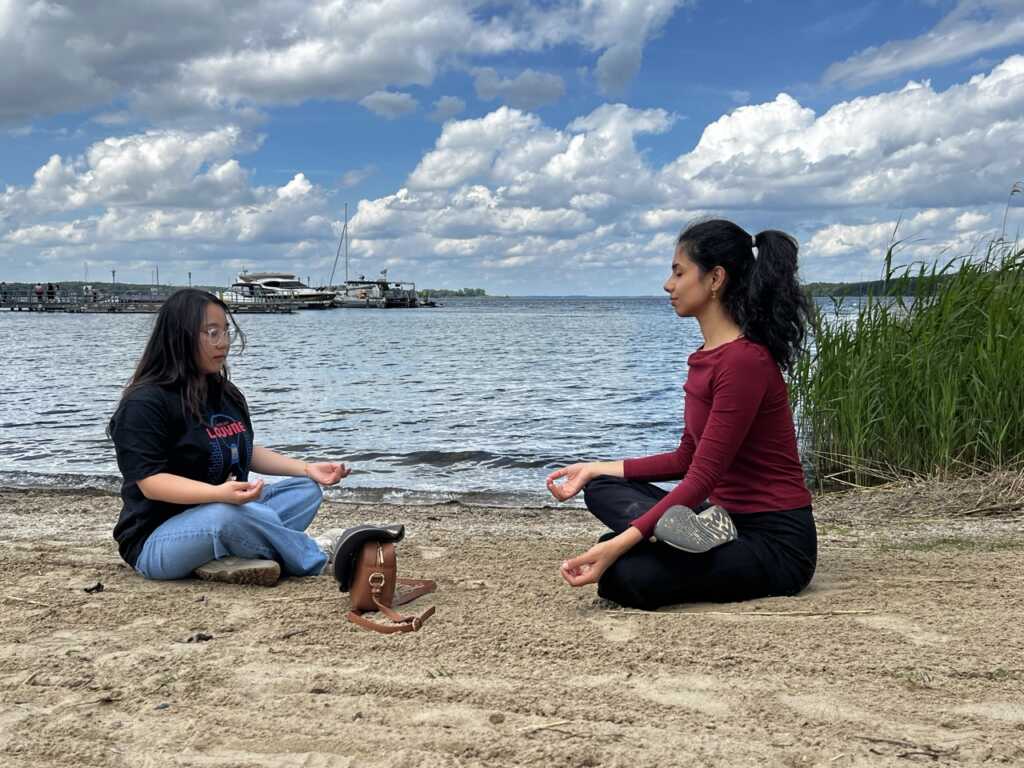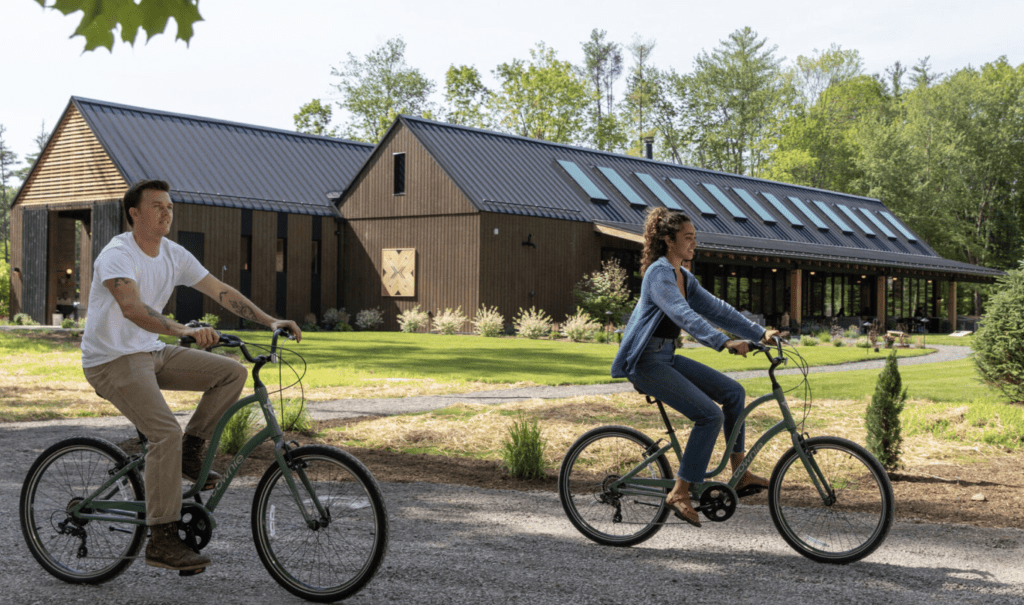Why a corporate retreat matters goes far beyond a change of scenery. Picture your team members stepping away from their screens and into a mountainside lodge or beachside villa. Instead of another Zoom call, they’re gathered around a bonfire after a day of team-building activities—sharing stories, laughter, and ideas. That’s the power of a well-designed work retreat.
When done intentionally, a retreat theme acts as the glue that holds the experience together. It provides structure, sets expectations, and links the activities to real business outcomes. Whether your company is scaling fast, moving to a hybrid model, or simply trying to boost morale, a thoughtfully chosen theme ensures your team retreat delivers more than just a getaway.
Varying types of retreat themes tie directly to the goals of company retreats: aligning with strategy, building culture, fostering creativity, and strengthening camaraderie. They also influence the choice of retreat location—whether you prioritize wellness at a spa resort, adventure at a mountain basecamp, or accessibility in an urban hotel.
The ROI is clear. Gallup data shows that highly engaged employees are 21% more productive, and Deloitte research links strong employee engagement to lower turnover and higher profitability. Retreat activities—from brainstorming sessions to icebreakers—turn “time away from work” into meaningful progress.
Here are 10 creative corporate retreat ideas that can inspire your planning process, strengthen teamwork, and ensure your next retreat is a truly successful retreat.
1. Innovation Lab

If your company is gearing up for a product launch or mapping long-term strategy, an Innovation Lab is one of the most powerful retreat ideas. Modeled after hackathons, these retreats put cross-functional teams together to solve problems creatively.
Activities to include:
- Structured brainstorming sessions in a conference room
- Design sprints with real-time prototyping
- Icebreaker games to spark collaboration
- Small-group planning activities with clear deliverables
Companies like Fonoa run offsites twice a year, bringing fully remote teams together for ideation. The key is pairing the right facilitator with inspiring retreat locations—think modern lodges in Colorado or boutique hotels with dedicated meeting spaces. A shared template for capturing ideas ensures progress carries back into daily operations.
Outcome: Innovation Labs not only generate fresh ideas but also give team members ownership in the planning process, reinforcing both creativity and connection.
2. Leadership Bootcamp

A Leadership Bootcamp is ideal for organizations navigating change or scaling quickly. It’s a corporate retreat theme that focuses on strengthening leadership capabilities and preparing managers for uncertainty.
Activities to include:
- Role-play scenarios on conflict management
- Peer mentorship circles for senior leaders
- Resilience workshops guided by professional coaches
- Outdoor team-building exercises like a scavenger hunt or group kayaking trip
An experienced facilitator is key here, often bringing years of experience in coaching executives. Sessions might take place in a hotel conference room during the day, balanced with evening happy hours or casual game nights.
Outcome: Leaders leave with sharper skills, greater alignment, and renewed confidence to build psychological safety within their teams. A Leadership Bootcamp underscores why corporate retreats are vital—they prepare leaders for the next chapter while improving the overall work environment.
3. Wellness & Mindfulness

For teams experiencing burnout, a Wellness & Mindfulness retreat provides a restorative getaway. This theme emphasizes well-being, balance, and sustainable productivity.
Activities to include:
- Morning yoga or guided mindfulness meditations
- Cooking classes with a focus on healthy meals
- Spa sessions with massages or spa treatments
- Reflection walks or nature hikes
Choosing a retreat location with strong wellness offerings is crucial. Resorts with fitness centers, saunas, and outdoor spaces help team members reset. Importantly, the retreat agenda should include plenty of free time so participants can rest, journal, or simply enjoy quiet moments.
Outcome: A wellness-focused work retreat sends employees back not only engaged but also energized, reducing burnout and improving overall employee engagement.
4. Adventure & Challenge

Adventure themes push teams out of their comfort zones, fostering resilience and trust. These retreats are perfect for groups looking to strengthen camaraderie and encourage risk-taking.
Activities to include:
- Ziplining through forests
- Whitewater kayaking
- Beachside volleyball tournaments
- Team scavenger hunts across local landmarks
- Rock climbing or ropes courses
When designing adventure retreats, planners should balance thrill with inclusivity, offering alternative activities for those less comfortable with high-intensity challenges. Retreat facilitators often stress the importance of reflection after activities, tying the adrenaline rush back to business lessons.
Outcome: Adventure retreats spark unforgettable stories, boost confidence, and show how overcoming challenges together strengthens team bonding and teamwork.
5. Creative Collaboration

Sometimes, the best way to innovate is through play and creation. Creative Collaboration retreats focus on shared expression and imagination.
Activities to include:
- Group art projects or improv workshops
- Dance or music sessions (yes, even karaoke)
- Escape rooms for collaborative problem-solving
- Storytelling circles
- Collaborative cooking challenges in a cooking class
These corporate retreat ideas scale easily: smaller teams can hold intimate workshops, while larger companies might host full-blown creative festivals. Include lighthearted fun activities like a themed game night with board games or trivia competitions.
Outcome: Creativity-focused retreats encourage innovation, nurture company culture, and remind team members that imagination fuels stronger collaboration.
6. Cultural Immersion

For hybrid or international teams, cultural immersion is one of the most rewarding retreat themes. It bridges cultural divides, builds empathy, and helps teams gain fresh perspectives.
Activities to include:
- Local cooking or dance lessons
- Guided tours of historical sites
- Service projects with local communities
- Cultural icebreakers like sharing personal traditions
This theme works best in destinations rich in history or tradition. Whether it’s learning pasta-making in Tuscany or joining a community project in Bali, immersive retreat activities create connection through shared experience.
Outcome: Teams leave with deeper appreciation for diversity, stronger camaraderie, and stories that connect them across cultures.
7. Future Visioning

Also known as strategic alignment retreats, Future Visioning helps companies pause and ask: Where are we headed next?
Activities to include:
- Strategy reviews in a conference room
- Roadmap co-creation using collaborative whiteboards
- Brainstorming sessions on emerging trends
- Scenario planning guided by a facilitator
A clear retreat agenda is critical here. The days should balance structured dialogue with reflective free time for executives and team members to process ideas. Providing templates for budgeting and documenting strategy ensures practical outcomes.
Outcome: Teams walk away aligned, motivated, and ready to execute. Future Visioning retreats directly tie into ROI by turning retreat planning into actionable business strategy.
8. Hybrid/Remote Connection

For remote teams, in-person connection is priceless. Hybrid/Remote retreats bring distributed employees together to bond while also reinforcing virtual rituals.
Activities to include:
- Shared meals and storytelling
- Happy hours with games like trivia or karaoke
- Outdoor team-building exercises like hikes or volleyball
- Workshops on communication and collaboration tools
Using retreat software helps with event planning, scheduling, and post-retreat follow-up. The goal is to create an inclusive retreat experience that blends team-building activities with time to simply connect.
Outcome: Remote employees leave with stronger personal connections, which translate into higher employee engagement and better collaboration once back online.
9. Game-On!

Gamification makes any retreat memorable. From board games to obstacle races, turning activities into competitions brings out energy and laughter.
Activities to include:
- Office Olympics with relay races and volleyball
- Board games tournaments in the evenings
- Trivia contests and scavenger hunts
- Game nights with video games or group puzzles
- Lighthearted icebreaker competitions like charades
Don’t overlook social favorites like karaoke or a casual happy hour. These fun activities inject joy into the retreat, helping teams unwind.
Outcome: Gamified retreats strengthen team bonding, improve morale, and show how play fuels teamwork in ways traditional meetings cannot.
10. CSR & Impact
A CSR retreat blends business with purpose, allowing teams to give back together. It’s one of the most meaningful corporate retreat ideas because it leaves both internal and external legacies.
Activities to include:
- Building bikes for kids
- Habitat for Humanity projects
- Beach or park cleanups
- Organizing a charity volleyball tournament
CSR retreats reinforce values and demonstrate that the company cares about more than profit. They also provide natural icebreakers and team-building exercises, making them especially impactful for newer teams.
Outcome: CSR retreats not only drive social good but also deepen team bonding, strengthen company culture, and enhance brand reputation.
Practical Tips for Planning a Successful Retreat
Beyond themes, the planning process determines whether a retreat succeeds.
- Start early: Begin retreat planning 6–9 months in advance.
- Balance the agenda: Combine structured sessions with free time.
- Choose the right facilitator: A skilled facilitator ensures sessions stay productive.
- Pick the right retreat location: Consider accessibility, safety, and inspiring environments.
- Use templates: Budget templates keep costs transparent.
- Plan follow-up: A successful retreat doesn’t end at check-out—set clear next steps.
- Incorporate fun: Add icebreakers, game nights, or social rituals like a final happy hour.
Avoid common mistakes like overstuffing the agenda, neglecting inclusivity, or skipping the follow-up.
Retreat Activities Deep Dive
If you’re looking for inspiration, here’s a list of retreat activities to add variety and fun:
Adventure: Ziplining, kayaking, hikes, obstacle courses.
Creative: Art projects, improv, cooking classes, storytelling.
Social: Trivia, board games, karaoke, happy hours, game nights.
Problem-Solving: Escape rooms, scavenger hunts, design challenges.
Wellness: Yoga, meditation, spa days, fitness classes.
Mixing these fun activities ensures your next retreat appeals to different personalities and creates a truly inclusive retreat experience.
Conclusion
Retreats aren’t perks—they’re strategic investments. Whether you’re planning a wellness getaway, a leadership bootcamp, or an adventure-packed team retreat, the ROI of a corporate retreat lies in stronger alignment, improved retention, and higher employee engagement.
The most successful retreats are intentional. They blend strategy with team-building exercises, structure with free time, and outcomes with fun. They’re also inclusive—designed with every participant in mind.
With thoughtful event planning, the right facilitator, and tools like templates for budgeting, your company can create a transformative retreat experience that sparks innovation, strengthens company culture, and energizes employees for the future.
At RetreatsAndVenues.com, we specialize in helping organizations design their next retreat. As the world’s largest marketplace for corporate retreat locations, we connect you with vetted venues and curated corporate retreat ideas—whether you’re hosting 10 people in a boutique villa or 500 at a global corporate event.
Your planning process just got easier. Now’s the time to design a work retreat that inspires, excites, and leaves a lasting impact.
Frequently Asked Questions
1. What qualifies as a corporate retreat?
A corporate retreat—also called a team offsite or work retreat—is designed to build company culture, align goals, and create team bonding. Themes can range from wellness and adventure to CSR or innovation.
2. How long should a corporate retreat last?
It depends on objectives. Small team retreats may last one to two days, while larger corporate events often extend four to five days to maximize ROI.
3. How do I choose a retreat theme?
Start with your purpose: innovation, wellness, culture, or impact. Then match the retreat theme to the right retreat location and balance planning activities with fun activities.
4. How do you make a work retreat fun?
Incorporate retreat ideas like escape rooms, cooking classes, scavenger hunts, trivia, karaoke, or a game night with board games.
5. What should we discuss at a company retreat?
Topics often include strategy, culture, and future planning. Use the conference room for structured brainstorming sessions, but also allow free time for informal dialogue.
6. What keeps team members engaged during and after retreats?
Strong follow-up is key. Retreat software and smart event planning tools help track progress. Continuing rituals like happy hours or icebreaker games keep momentum alive.
7. Are corporate retreats tax deductible?
Often, yes. If at least 60% of programming is business-focused, expenses for travel, meals, and lodging may qualify. Using budget templates during the planning process helps ensure compliance.
